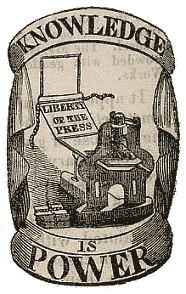
The Bear has been prowling Wall Street for over a year now, and every time the Federal Reserve steps in to help the faltering stock market with a reduction in interest rates, that creates a temporary "bubble", our dollar takes another hit.Today it is at the lowest value compared with the Euro in the Euros history.
The dollar buys less each month, and never mind trying to buy imported goods from Europe. They cost 50 cents a dollar more than they did a few years ago, and the more expensive the item is, the bigger chunk it takes out of your wallet!
But the real crime of the month involves the Federal Government. Actually your tax dollar, not the "earn nothing spend lots" Federal Government, is bailing out a Brokerage House whose bad investment decisions, poor management and greed has left them at the door of bankruptcy. Such is the case of the Bear Stearns bail out. The press reports that it is being bought by Morgan Chase, but unlike you or I, when we buy a business we assume debts and liabilities. Not so in this case!
Morgan Chase gets a free ride on your back. The deal is backed by a "shady deal" cooked up by the Federal Reserve where by the Fed. will "assume" the worthless securities and bad loans to the tune of up to $30 billion. Morgan Stanley gets to pick up 29 million shares of Bear Stearns stock at ten dollars a share. Sounds like a good deal to me! Unless you are an employee or a major stock holder who last month held shares worth 170 dollars.
To help facilitate the deal, the Federal Reserve is taking the extraordinary step of providing as much as $30 billion in financing for Bear Stearns's less-liquid assets, such as mortgage securities that the firm has been unable to sell, in what is believed to be the largest Fed advance on record to a single company. Fed officials wouldn't describe the exact financing terms or assets involved.( you try to get away with such a hidden transaction). But if those assets decline in value, the Fed(aka taxpayer) would bear any loss, not J.P. Morgan. The sale of Bear Stearns and Sunday night's move by the Fed to offer loans to other securities dealers mark the latest historic turns in what has become the most pervasive financial crisis in a generation.
” Bears stocks which were worth $170.00 a share, were going for $2.52 a piece. According to William Smith, portfolio manager of Smith Asset Management and a former Bear employee. “The $10 a share stock price is more than what CEO Jamie Dimon initially offered, and cause a furor.
The all-stock deal, agreed to on March 16, had valued Bear Stearns at $2.52 a share, based on last week's closing price. Dimon and his team yesterday agreed to quadruple the price to $10 a share and negotiated to buy 39.5 percent of the company without a shareholder vote, enhancing chances that the deal will close quickly and helping New York-based JPMorgan retain Bear Stearns employees and clients. But not all employees and clients, as many have already "flew the coop"!
Anything above $2.00 seems better, because the alternative could have been nothing. However, employees and large stock holders just watched their fortunes or "nest egg" vaporize. Bear Stern employees own approximately one-third of the firm’s stock and often received annual bonuses in the form of stock. Bonuses which are now worthless".Source Bloomberg.com
To add insult to injury, many of Bears’ 14,000 employees are to be laid off. With the collapse of the stock, they are now poor and without a job. Nothing new about the nasty and painful business happening on Wall Street!
Meanwhile CEO Dimon, a protegee of the famous or infamous CEO of Citigroup Sandy Weill, is being haled as a hero on Wall Street because The firm has only taken $3.7 billion in write downs on assets and loan losses, while Citigroup Inc. has had $22.4 billion and Bank of America Corp. $7.9 billion, according to data compiled by Bloomberg.
I think the employees and stock holders should be grateful to the hard working taxpayers whose taxes will be used to bail out another failed financial institution as was the case in the sub-prime mortgage business.










No comments:
Post a Comment